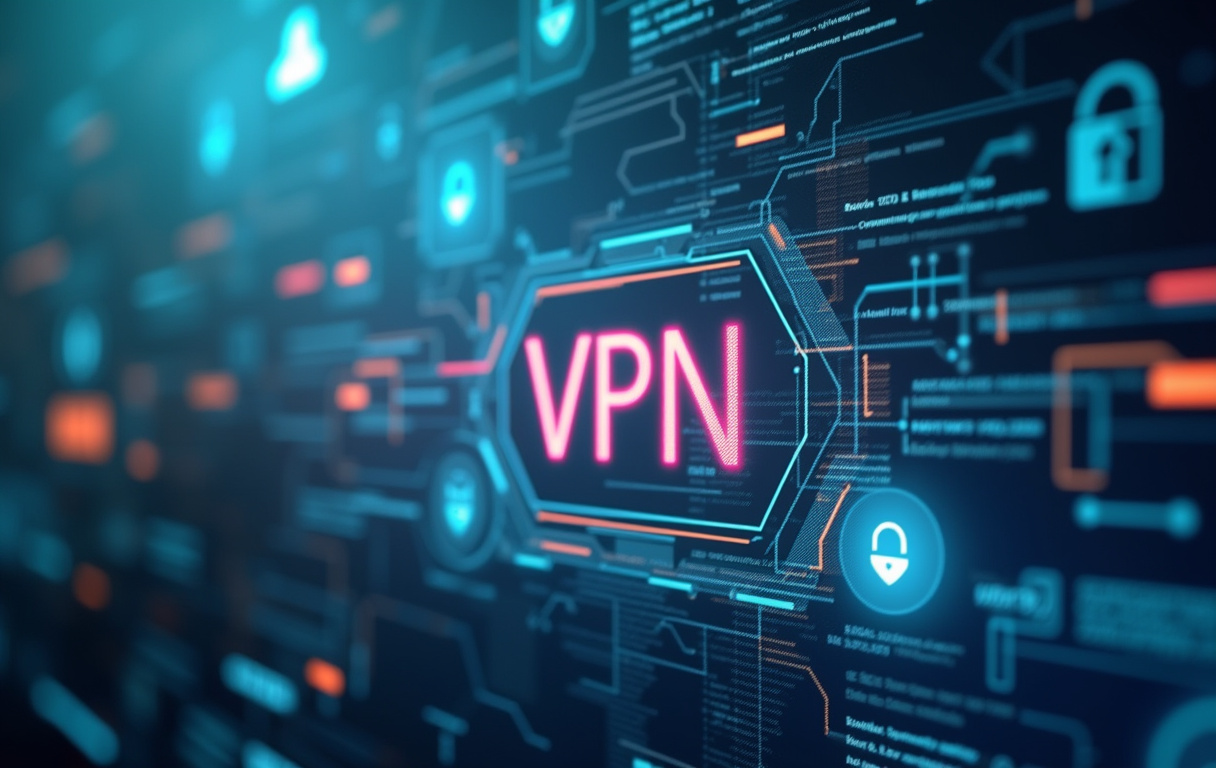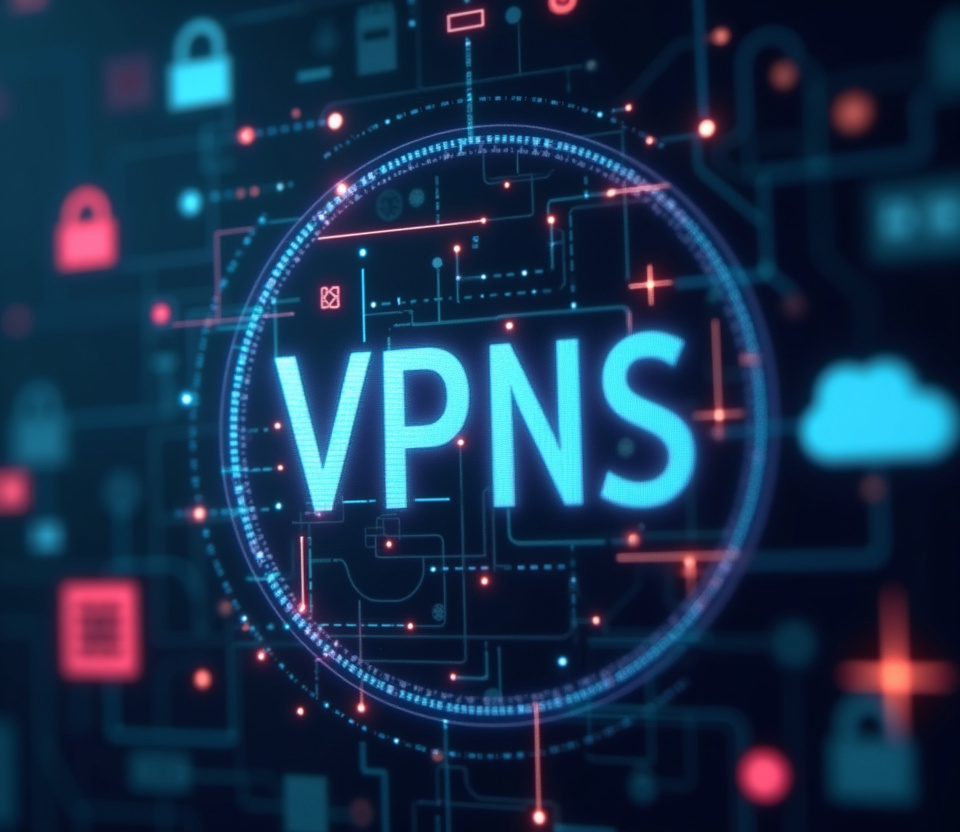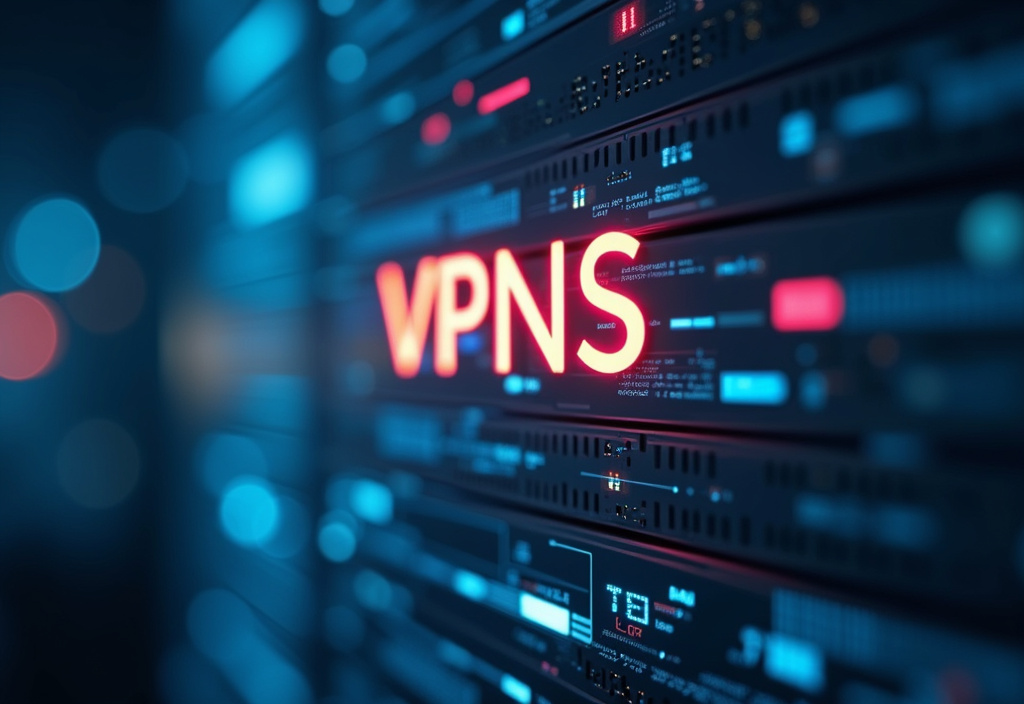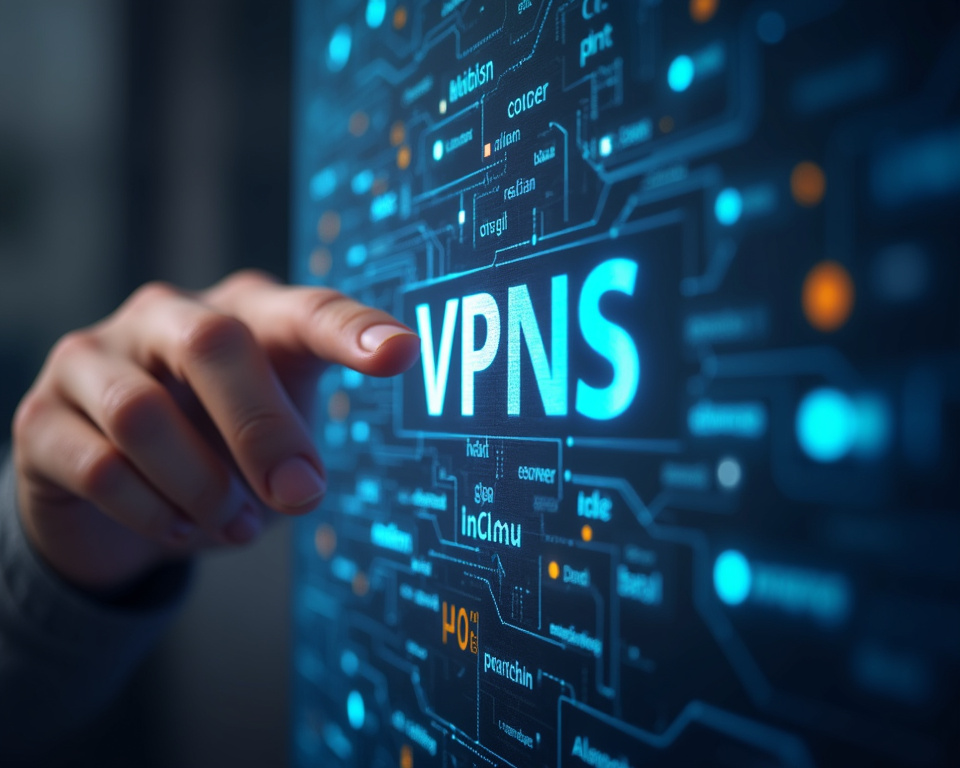VPNs for Telecommunication Providers: Securing Data Networks
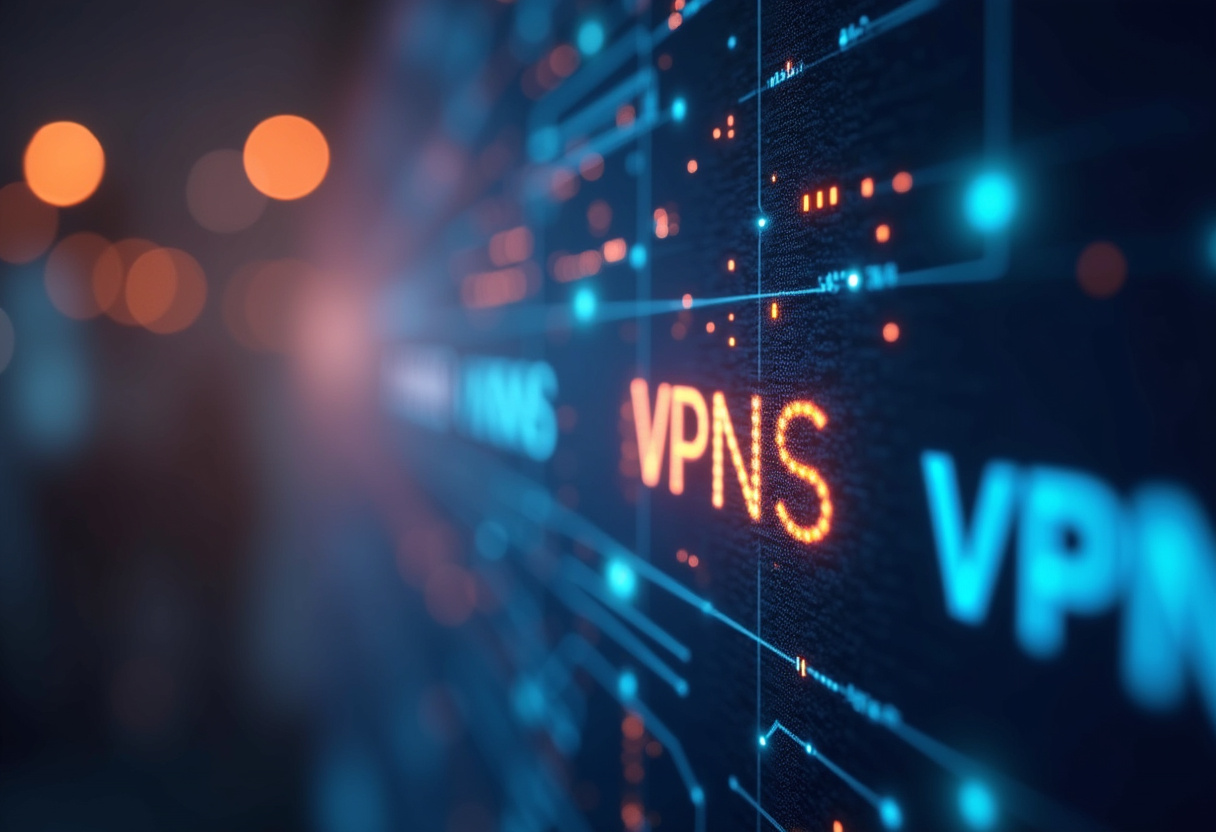
Table of Contents
Introduction: The Growing Need for Secure Telecom Networks
In today's interconnected world, telecommunication providers are essential for facilitating global communication and data exchange. They form the backbone of modern society, enabling businesses, individuals, and governments to connect and share information seamlessly. However, this reliance on telecommunication networks also presents significant challenges, particularly in the realm of data network security.
As the volume and complexity of data transmitted over these networks continue to grow exponentially, the need to protect sensitive information from unauthorized access, cyber threats, and data breaches becomes ever more critical. This is where Virtual Private Networks (VPNs) for telecommunication providers come into play, offering a robust and reliable solution for securing data networks, ensuring communication integrity, and supporting reliable operations. Telecommunication VPNs provide a secure and encrypted tunnel for data transmission, effectively shielding sensitive information from prying eyes and malicious actors.
By implementing VPN technology, telecommunication providers can enhance their data network security posture, protect their customers' privacy, and maintain the integrity of their communication infrastructure. In this comprehensive exploration, we will delve into the intricacies of VPNs for telecommunication providers, examining their benefits, functionalities, implementation considerations, and the critical role they play in safeguarding data networks and ensuring seamless communication. We will also discuss how telecommunication VPNs contribute to reliable operations, enabling providers to deliver consistent and high-quality services to their customers.
Understanding the importance of telecommunication VPNs is paramount for any telecommunication provider looking to strengthen their *data network security*, maintain *communication integrity*, and provide *reliable operations* in today's increasingly complex and interconnected digital landscape. The modern telecommunications provider is no longer just a conduit for voice and data; it's a guardian of information, a facilitator of commerce, and a critical infrastructure component. The trust placed upon these providers is immense, and any breach of that trust can have far-reaching consequences.
A data breach can lead to significant financial losses, reputational damage, and legal liabilities. Customers may lose confidence in the provider's ability to protect their sensitive information, leading to churn and decreased revenue. Furthermore, regulatory bodies are increasingly scrutinizing telecommunication providers' security practices, imposing hefty fines for non-compliance.
Therefore, the adoption of robust security measures like *telecommunication VPN* is not merely a best practice, but a necessity for survival and continued success in the competitive telecommunications market. Securing the network translates directly to securing the business and the futures of its clients. The *VPN for telecom* market recognizes this with increasingly sophisticated solutions.
The shift towards remote work, cloud computing, and the Internet of Things (IoT) has only amplified the need for secure data transmission and highlights the importance of a robust *VPN for telecom*. These trends have expanded the attack surface, creating new vulnerabilities that malicious actors can exploit. Remote workers often connect to corporate networks from unsecured home networks, making them a prime target for phishing and malware attacks.
Cloud-based applications and services require secure connectivity to protect sensitive data stored and processed in the cloud. IoT devices, with their limited security capabilities, can be easily compromised and used to launch attacks on the network. *Telecommunication VPNs* offer a scalable and adaptable solution to meet these evolving challenges.
They provide a consistent security layer across diverse networks, ensuring that data remains protected regardless of the location of the user or the sensitivity of the information. By investing in a well-designed and implemented *telecommunication VPN*, providers demonstrate a commitment to security and reliability, which can be a significant differentiator in the market. This, in turn, builds trust with customers, fostering long-term relationships and driving business growth.
A strong security posture can also attract new customers who are increasingly concerned about data privacy and security. A *telecommunication VPN* is therefore a key component for building this trust. The integration of *VPN for telecom* technology also allows telecommunication providers to offer enhanced services to their enterprise clients.
Secure connectivity between branch offices, remote access for employees, and secure data transfer for critical applications are all key services that can be delivered using a *telecommunication VPN*. This adds value to the provider's offerings and positions them as a trusted partner for businesses of all sizes. Services such as secure SD-WAN based on *telecommunication VPN* technology are becoming increasingly common.
The core function of a *telecommunication VPN* lies in its ability to create a secure and encrypted tunnel for data transmission. Unlike traditional networks where data travels in the clear, vulnerable to interception and eavesdropping, a VPN encrypts all data before it leaves the sender's device and decrypts it only upon arrival at the intended recipient's device. This encryption process renders the data unreadable to unauthorized parties, effectively protecting it from interception and misuse.
This mechanism is fundamental to ensuring *data network security* and maintaining *communication integrity*. Without it, sensitive information traversing the telecommunications provider's network would be exposed to a myriad of threats. Imagine financial transactions, confidential business communications, or personal health records being intercepted by malicious actors.
The consequences could be devastating. Therefore, the encrypted tunnel provided by a *telecommunication VPN* is a critical safeguard, protecting the privacy and security of data in transit. Several encryption protocols are commonly used in *telecommunication VPNs*, each with its own strengths and weaknesses.
These protocols include IPsec (Internet Protocol Security), SSL/TLS (Secure Sockets Layer/Transport Layer Security), and OpenVPN. IPsec is a widely used protocol that provides robust security for IP communications. It operates at the network layer, securing all traffic between two endpoints.
This protocol is often favored for site-to-site VPN connections, where entire networks need to be securely connected. SSL/TLS, on the other hand, is typically used to secure web traffic and other application-layer protocols. It is commonly employed for remote access VPNs, allowing individual users to securely connect to the network from remote locations.
OpenVPN is an open-source VPN protocol that offers a high degree of flexibility and customization. Its open-source nature makes it a popular choice for developers and security-conscious organizations. The choice of encryption protocol depends on the specific security requirements of the *telecommunication* provider and the nature of the data being transmitted.
A thorough assessment of these factors is crucial in selecting the most appropriate protocol. In addition to encryption, *telecommunication VPNs* also provide strong authentication mechanisms to verify the identity of users and devices connecting to the network. This authentication process prevents unauthorized access and ensures that only legitimate users and devices are allowed to transmit data over the VPN.
Common authentication methods which ensure *communication integrity* include passwords, digital certificates, and multi-factor authentication (MFA). Passwords, while widely used, are susceptible to cracking and phishing attacks. Therefore, relying solely on passwords for authentication is not recommended for *telecommunication VPNs*.
Digital certificates provide a more secure authentication method by using cryptographic keys to verify the identity of users and devices. MFA adds an extra layer of security by requiring users to provide multiple forms of authentication, such as a password and a one-time code sent to their mobile device. This significantly reduces the risk of unauthorized access, even if a password is compromised.
Beyond encryption and authentication, *telecommunication VPNs* also incorporate various security features to protect against other types of cyber threats, ensuring *reliable operations*. These features include firewalls, intrusion detection systems (IDS), and intrusion prevention systems (IPS). Firewalls act as a barrier between the VPN and the external network, blocking unauthorized access and preventing malicious traffic from entering the VPN.
IDS monitors network traffic for suspicious activity and alerts administrators to potential security breaches and, consequently, protects *data network security*. IPS goes a step further by automatically blocking or mitigating detected threats ensuring smooth *reliable operations*. The combination of these security features creates a comprehensive defense against a wide range of cyber attacks, helping to ensure the integrity which facilitates smooth *reliable operations* and availability of the *data network security*.
It strengthens the overall *communication integrity*. It is crucial to recognize that a *telecommunication VPN* is not a one-size-fits-all solution. The specific configuration and implementation of the VPN will depend on the provider's needs, the size and complexity of its network, and the sensitivity of the data it needs to protect.
A thorough assessment of these factors is necessary to determine the optimal VPN configuration for the organization. This assessment should include evaluating the types of data being transmitted, the potential threats to the network, and the required level of security. It should also take into account the provider's budget, technical expertise, and regulatory compliance requirements.
Without a clear understanding of these factors, the *telecommunication VPN* may not provide adequate protection, leaving the network vulnerable to attacks. Ultimately, the goal of the *telecommunication VPN* is to create a secure and reliable communication channel, enabling the provider to deliver its services with confidence and ensuring the privacy and security of its customers' data.
Choosing the Right VPN Provider and Robust Configuration
Implementing a *telecommunication VPN* involves careful planning, configuration, and ongoing maintenance. It's not simply a matter of installing a piece of software; it requires a strategic approach that considers the unique needs and infrastructure of the telecommunications provider to ensure *data network security*. The initial planning phase should involve a thorough assessment of the existing network infrastructure, security policies, and regulatory requirements.
This assessment will help to identify potential vulnerabilities, determine the appropriate level of security, and define the scope of the *telecommunication VPN* implementation. A crucial aspect of this phase is selecting the right *VPN for telecom* solution or building one inhouse. Factors to consider include scalability, performance, compatibility with existing systems, and cost.
Configuration is a critical step in the *telecommunication VPN* implementation process. It involves setting up the VPN servers, configuring the encryption protocols, and establishing the authentication mechanisms. Proper configuration is essential to ensure that the VPN provides the required level of security and performance to ensure *reliable operations*.
Misconfigured VPNs can be easily exploited by attackers, undermining the entire security posture of the network. Security policies play a crucial role in governing the use of the *telecommunication VPN*. These policies should define who is authorized to use the VPN, what types of data can be transmitted over the VPN, and what security measures users must follow.
Clear and comprehensive security policies are essential to ensure that users understand their responsibilities and adhere to best practices, thus reinforcing *communication integrity*. Ongoing maintenance is essential to ensure that the *telecommunication VPN* remains secure and performs optimally, which contributes directly to *reliable operations*. This includes regularly updating the VPN software, monitoring network traffic for suspicious activity, and promptly addressing any security vulnerabilities.
Security audits and penetration testing should be conducted periodically to identify potential weaknesses in the VPN configuration and security policies. These audits can help to ensure that the VPN is providing the required level of protection and that it is aligned with industry best practices for safeguarding *data network security*. Furthermore, the implementation of a *telecommunication VPN* should also consider the impact on network performance.
Encryption can add overhead to data transmission, potentially slowing down network speeds. Therefore, it's essential to carefully choose the encryption protocols and configure the VPN servers to minimize any performance degradation. Load balancing techniques can be employed to distribute traffic across multiple VPN servers, further improving performance and ensuring continued *reliable operations*.
The provider needs to assess the impact of the *telecommunication VPN* on their overall services. Employee training is another critical aspect of *telecommunication VPN* implementation. Users need to be educated about the importance of using the VPN, how to connect to the VPN securely, and what security measures they must follow.
Training should also cover topics such as password security, phishing awareness, and malware prevention. Well-trained employees are a critical line of defense against cyber attacks, and they can play a significant role in ensuring the effectiveness of the *telecommunication VPN* and preserving *communication integrity*. Finally, the *telecommunication VPN* implementation should be integrated with other security measures, such as firewalls, intrusion detection systems, and anti-malware software, creating a layered security approach.
This multi-layered approach provides comprehensive protection against a wide range of cyber threats. For example, a firewall can block unauthorized access to the network, while an intrusion detection system can detect suspicious activity and alert administrators. Anti-malware software can protect against viruses, worms, and other malicious software.
The integration of these security measures creates a robust and resilient security posture, helping to ensure *data network security*, preserving *communication integrity*, and enabling *reliable operations*. The goal is a holistic security ecosystem.
VPNs for Services: Enhancing Security and Privacy for Subscription Platforms
*Telecommunication VPNs* offer a multitude of benefits beyond simply securing data in transit. They are instrumental in ensuring *reliable operations* for telecommunication providers, contributing significantly to the stability and efficiency of their networks. One key benefit is enhanced network performance management.
By providing a secure and isolated network environment, *telecommunication VPNs* allow providers to prioritize and optimize traffic flow. This is particularly important for time-sensitive applications, such as voice and video conferencing, which require low latency and high bandwidth. Furthermore, *telecommunication VPNs* facilitate seamless integration of new services and technologies, allowing providers to quickly adapt to changing market demands.
For example, they can be used to securely connect new data centers or branch offices to the existing network, without compromising security or performance. This agility is crucial in today's rapidly evolving telecommunications landscape. The *telecommunication VPN* therefore becomes an enabler of innovation.
Another significant benefit is reduced operational costs. By leveraging existing network infrastructure, *telecommunication VPNs* eliminate the need for dedicated leased lines, which can be expensive and time-consuming to deploy. This can result in significant cost savings, particularly for providers with geographically distributed networks.
Additionally, *telecommunication VPNs* simplify network management, reducing the administrative burden on IT staff to ensure *reliable operations*. Moreover, *telecommunication VPNs* enhance network resilience and disaster recovery capabilities. By providing a secure and redundant communication channel, they enable providers to quickly restore services in the event of a network outage or disaster.
This is crucial for ensuring business continuity and minimizing downtime, maintaining *reliable operations*. The *telecommunication VPN* can serve as a failsafe mechanism. Compliance with regulatory requirements is another important consideration.
Telecommunication providers are subject to a wide range of regulations, such as data privacy laws and security standards. *Telecommunication VPNs* can help providers to meet these requirements by providing a secure and auditable network environment which supports *data network security* and increases stakeholder confidence. This is particularly important for providers that handle sensitive data, such as financial or healthcare information.
The *telecommunication VPN* then becomes a tool for fulfilling legal obligations. In terms of specific use cases, *telecommunication VPNs* are widely used for secure remote access, allowing employees to connect to the corporate network from remote locations. This is particularly important in today's increasingly mobile workforce.
*Telecommunication VPNs* are also used for site-to-site connectivity, securely connecting multiple branch offices or data centers, contributing to *reliable operations*. Further, they are employed for secure cloud connectivity, providing a secure connection between the provider's network and cloud-based applications and services. This is essential for protecting sensitive data stored and processed in the cloud ensuring *data network security*.
To further optimize the benefits of *telecommunication VPNs*, providers should consider implementing quality of service (QoS) mechanisms to prioritize traffic based on its importance. This ensures that critical applications receive the necessary bandwidth and resources to perform optimally. Traffic shaping techniques can also be used to smooth out traffic patterns and prevent congestion, further improving network performance and *communication integrity*.
Adaptive routing protocols can be implemented to automatically reroute traffic around network outages, improving resilience and ensuring continued *reliable operations*. These proactive steps ensure a stable, secure and optimized environment. The *telecommunication VPN* enables operational agility.
The Future of VPNs: Integration, AI, and Enhanced Security
Looking ahead, the future of *telecommunication VPNs* is likely to be shaped by several key trends. One trend is the increasing adoption of software-defined networking (SDN) and network functions virtualization (NFV). SDN and NFV enable telecommunication providers to create more flexible and scalable networks, and they can be used to further enhance the capabilities of *telecommunication VPNs* and ensure *reliable operations*.
For example, SDN can be used to dynamically provision VPNs based on changing network conditions and security requirements. NFV can be used to virtualize VPN functions, making them easier to deploy and manage. Another trend is the growing importance of zero-trust security.
Zero-trust security is a security model that assumes that no user or device is inherently trustworthy, regardless of whether they are inside or outside the network perimeter. By implementing zero-trust principles, telecommunication providers can further strengthen the security posture of their *telecommunication VPNs* and protect against insider threats, enhancing *data network security* and *communication integrity*. This means verifying every user and device before granting access.
The rise of 5G technology will also have a significant impact on *telecommunication VPNs*. 5G offers higher speeds, lower latency, and greater capacity than previous generations of mobile technology. This will enable new use cases for *telecommunication VPNs*, such as secure mobile access to bandwidth-intensive applications and services, supporting *reliable operations* for mobile workforces.
It allows a wider range of functions to operate securely and efficiently. Furthermore, the increasing sophistication of cyber attacks will require telecommunication providers to continuously adapt and improve their *telecommunication VPN* security measures. This includes investing in advanced threat detection and prevention technologies, such as artificial intelligence (AI) and machine learning (ML).
AI and ML can be used to automatically analyze network traffic for suspicious activity and identify potential security breaches, further safeguarding *data network security* and preserving *communication integrity*. Cloud-native *telecommunication VPN* solutions are also gaining traction. These solutions are designed to be deployed and managed in cloud environments, offering greater scalability, flexibility, and cost-effectiveness and contributing to *reliable operations*.
They also facilitate seamless integration. As more telecommunication providers migrate their infrastructure to the cloud, the demand for cloud-native *telecommunication VPNs* is likely to continue to grow. Finally, collaboration and information sharing will be crucial for maintaining robust *data network security*.
Telecommunication providers should actively participate in industry forums and share threat intelligence with other organizations. This collective effort can help to improve the overall security posture of the telecommunications industry and protect against emerging cyber threats and ensure continued *reliable operations*. Information sharing enables a more proactive and defensive stance.
In conclusion, *telecommunication VPNs* are an essential security measure for telecommunication providers in today's increasingly complex and interconnected digital landscape. By providing a secure and encrypted tunnel for data transmission, they protect sensitive information from unauthorized access, cyber threats, and data breaches and maintain the integrity of communications, all of which contribute to *reliable operations*. As technology continues to evolve and cyber threats become more sophisticated, the role of *telecommunication VPNs* will only become more critical.
Telecommunication providers must continue to invest in and improve their *telecommunication VPN* security measures to ensure the privacy and security of their customers' data and maintain *communication integrity*. This will ensure they remain competitive and trustworthy in the long term.
Stay Updated
Get the latest VPN news, tips, and exclusive deals to your inbox.
